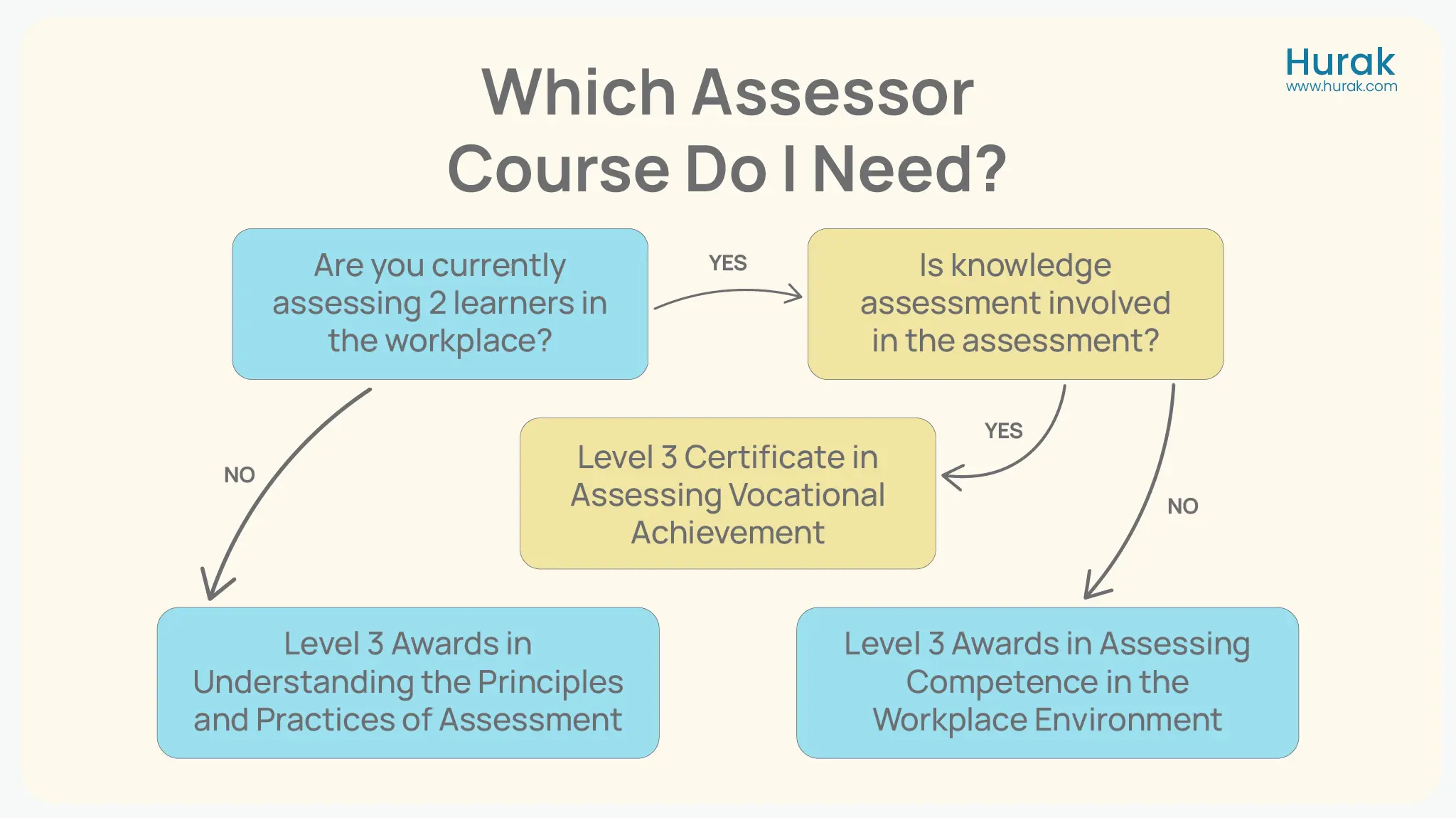Businesses across diverse sectors actively seek assessors, offering opportunities for career advancement and a rewarding salary. An assessor is responsible for guiding trainees towards achieving their career goals.
They evaluate learners’ skills and knowledge against set standards. Their duties include planning and conducting assessments to gauge learners’ work-related competence.
Given their responsibilities, assessors must possess expertise in their respective fields and undergo training. It is important to acquire relevant skills and knowledge before assuming the role of an assessor.
What Qualifications do you Need to Become a Qualified Assessor?
Obtaining a Relevant Assessor Qualification, such as the Level 3 CAVA Certificate, is important to qualify as an assessor. This credential enables individuals to conduct assessments in educational environments and trains them to evaluate competence in occupational settings.
Upon completion of the certification, assessors become eligible to evaluate learners pursuing National Vocational Qualifications (NVQs) and apprenticeships.

These are the three levels of courses for assessor qualifications:
Level 3 Award in Understanding Assessment Principles and Practices
The UPPA assessor course focuses on knowledge and is excellent for current assessors who want to improve their skills. It teaches the background knowledge and importance of assessment practices
Level 3 Award in Assessing Vocationally Related Achievement
The AVRA assessor course allows you to assess students in a training setting, like a workshop or classroom, but not in their workplace. To finish the course, you will complete four assessments on two learners (8).

Level 3 Award in Assessing Competence in the Work Environment
This ACWE assessor course lets you assess students at their workplace rather than in a classroom. Like the Vocationally Related Achievement award, you will determine the skills of two learners.
Level 3 (A1, D32/33) Certificate in Assessing Vocationally Related Achievement (CAVA)
The CAVA qualification lets you assess students in training and at their workplace. To finish, you must do 8 assessments with each learner (16 assessments in total).
What are the responsibilities of an assessor?
The responsibilities of an assessor vary based on the vocation assessed and the employing organisation. Common responsibilities of an assessor are:
- Observing students’ competency in the workplace
- Offering feedback and guidance to students
- Participating in standardisation meetings alongside other assessors
- Designing and conducting training sessions and workshops
- Approving awards upon fulfilment of all criteria
- Maintaining comprehensive records of students’ advancements.
How is an Assessor Different from an Internal Quality Assurer?
Knowing that an assessor’s role differs from an IQA’s is important. An IQA checks that assessments in an organisation are done fairly. They review the decisions made by assessors. Assessors are the ones who carry out the evaluations that the IQA checks.

Career Opportunities for a Qualified Assessor
Once you finish the TAQA Level 3 qualification (CAVA Level 3), you can assess learners in a classroom or at work. You can determine skills in many qualifications, including:
- Apprenticeships
- Functional Skills
- Technical Certificates
- NVQs
- Awards
- Certificates
- Diplomas
Once you gain some experience, you can move on to something more challenging and rewarding. The next step in this career path is the TAQA Level 4 of internal quality assurance.
How Much Do Qualified Assessors Earn?
Beginner or apprentice assessors can earn around £23,000 a year. The salary is typically around £25,000 annually for those who are established. Experienced assessors can earn up to £35,000 per year. These figures can vary, and if you work as a freelance assessor, you can choose your working hours and days.
FAQs
What is the TAQA assessor qualification?
The TAQA assessor qualification is a nationally recognised certification in the UK. It is designed for individuals who are currently assessing or want to assess the occupational competence of others in the workplace.
What is the difference between CAVA and TAQA?
CAVA is a qualification part of the TAQA suite. It stands for Certificate in Assessing Vocational Achievement. TAQA is not a qualification for Training, Assessment, and Quality Assurance. As the name suggests, TAQA is a suite of qualifications relevant to training, assessment, and quality assurance.
Can anyone become an assessor?
Anyone can become an NVQ assessor if qualified and gain relevant industry experience. NVQ assessors evaluate learners’ competency in their chosen vocational field.
What are the different types of assessors?
Assessors evaluate the learner’s skills, knowledge, and competence across various settings. Based on the certification, NVQ assessors are Workplace NVQ Assessors, Off-the-job NVQ Assessors or End-Point Assessors.




